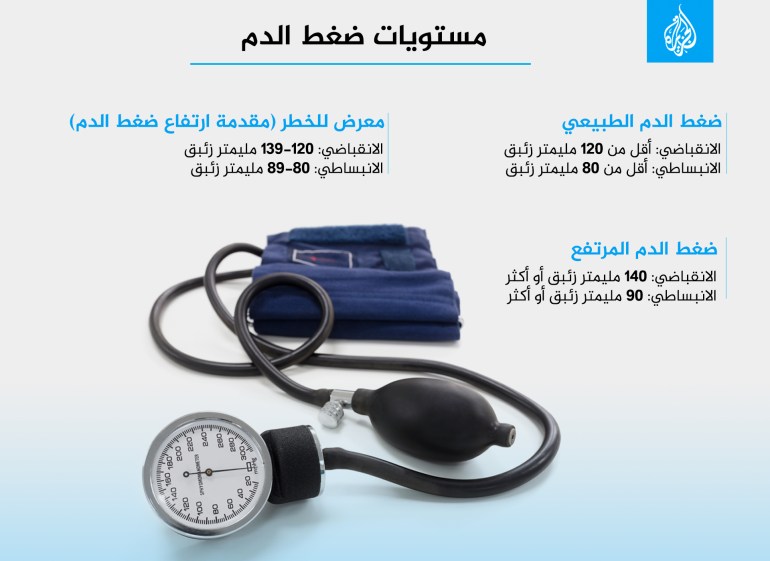What is the treatment of hypoglycemia if the pilgrim hit?
Tips for patients with heart, high blood pressure and diabetes during Hajj.
Many pilgrims suffer from heart disease, high blood pressure and diabetes, so what are the most important tips they should pay attention to?
How is hypoglycemia dealt with if a pilgrim is affected?
The answers here, in which we returned to the recommendations of the Saudi Ministry of Health.
Health guidelines for diabetics during Hajj
Make sure to put a bracelet around the wrist or carry an identification card stating that you have diabetes and the type of treatment, so that the necessary assistance can be provided to you when needed.
Ensure that you take a glucose meter to measure your blood sugar level daily and regularly, especially when you feel an imbalance in its level.
Make sure to carry a detailed medical report on your health condition.
Be sure to always inform the person near you at the place of residence and the campaign doctor that you have diabetes.
Make sure to take adequate amounts of diabetes medications, and follow the diet according to the instructions of the specialist.
Ensure that the insulin is cool during transportation and storage by placing it in the appropriate ice container (thermos) or the refrigerator in your place of residence.
Be sure to carry the glucagon injection (after the doctor's recommendation) for use by family members or those who are with you in the campaign in case of inability to eat or loss of consciousness.
During Hajj, make sure to wear comfortable socks to protect the feet from any blisters, and avoid walking barefoot.
It is advised not to start tawaf or saa’i until after taking treatment and adequate food, in order to prevent a drop in the level of sugar in the body.
Make sure to drink water in adequate quantities and frequently.
Temporarily stopping to continue performing the rituals in case of feeling symptoms of low blood sugar level, such as: tremors, dizziness with tiredness and fatigue, sudden hunger, profuse sweating or blurred vision.
Use your electric razor instead of a razor to avoid cuts and infections if possible.
Continuing to eat basic and light meals during travel and Hajj, to reduce exposure to a severe drop in the level of sugar.
Be sure to take some antiseptics to treat skin infections when they occur.
In the event of complications such as infections and ulcers of the skin, you should consult a doctor.
Refer to the nearest health center or hospital when needed.
Temporarily stop continuing the rituals if you feel symptoms of low sugar, such as extreme fatigue, sudden hunger, blurred vision or profuse sweating, and evaluate your situation regarding it.
Symptoms of low blood sugar
shivering feeling
Extreme hunger.
increased sweating;
Rapid heartbeat.
Vertigo.
Lack of focus.
nervousness;
Uncommon strange behaviour.
If the symptoms are not dealt with, they develop into more serious symptoms, which are nervous convulsions and loss of consciousness.
In some cases, severe hypoglycemia may lead to death.
Low blood sugar treatment
If you are conscious or aware (minor degree), the following can be done:
Drink a glass of local juice, such as: orange, apple, mixed fruit.
Or the amount of two tablespoons of raisins.
Or the amount of two teaspoons of honey.
Or the amount of two teaspoons of sugar dissolved in a glass of water.
Or take 2-5 glucose tablets (it can be bought at a pharmacy).
If you become unresponsive, which means that you have entered the stage of unconsciousness, you may need a glucagon injection. In the event of loss of consciousness, a member of your family or those with you in your place of residence or those around you must do the following:
Expedite the injection of glucagon if it is available in the place of hypoglycemia.
If glucagon is not available or the patient does not regain consciousness within 15-20 minutes after the glucagon injection, he must be taken to the nearest health center or hospital as soon as possible.
It is important to carry with you a card with instructions to do when you lose consciousness due to hypoglycemia and to make sure that your family members can do the necessary.
Health guidelines for patients with heart disease and high blood pressure during Hajj
See a doctor to ensure that the Hajj can be performed and to obtain the appropriate health instructions.
Ensure that your medicines are always carried and stored in the correct manner and in a suitable and easily accessible place.
Commitment to taking medicines regularly and on time, especially during the performance of rituals that require great effort, such as circumambulation, pilgrimage and throwing stones.
If you are likely to be exposed to angina pain, you should consult your doctor about carrying nitroglycerin tablets that are taken under the tongue, and taking these tablets to wherever you go.
Not to be subjected to any excessive physical exertion, and to use a wheelchair during Tawaf and Sa’y when feeling tired, according to the Shariah license.
Not to be exposed to excessive emotions and nervousness, and remember that tolerance is the characteristic of the pilgrim.
Refer to the nearest health center or hospital if you have severe chest pain to get the necessary medical attention.
What does heart disease include?
Heart disease and high blood pressure are chronic diseases. Heart diseases include arrhythmia, heart disease, heart infection and coronary artery disease, and its complications include heart failure, heart attack and stroke.

